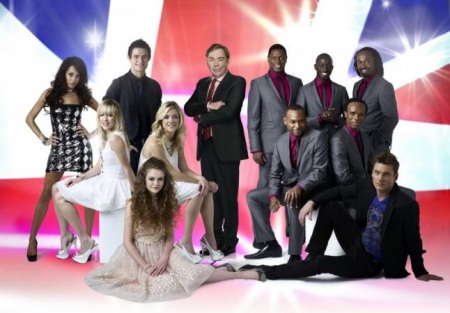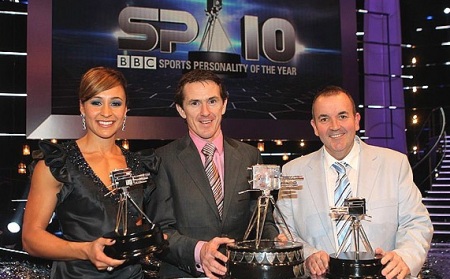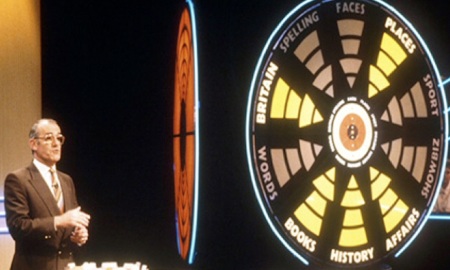What happens when passions are high, the smell of competition is in the air, yet your Contest is ignored by everyone for something more worthy? Take a look at two of my passions, Darts and Eurovision. Surprisingly, they do have a lot in common, and the former could teach the latter a few tricks in getting the UK public back on board and supporting their country in Europe’s Favourite TV Show. Darts has already reinvented itself to the British public, can Eurovision to do the same
Why do these two sports appeal to me? Is it because both sets of fans drink copious amounts of beer and will do anything to get a quick photo opportunity with their heroes? I would love to sit here and deny furiously these claims but unfortunately no, it’s true. I treasure all the pictures I have gathered over the years of my favourite Darts players and Eurovision performers and with good reason too.
Just like sports fans, Eurovision fans spend thousands following the Contest all over Europe. Many fans write for websites, newspapers and doing reports for radio stations, but we’re not paid journalists. We pay for flights, hotels and tickets to the shows… just as sports fans pay to watch their heroes all over the world, so do we.
My passion for Darts started years ago having watched the likes of Bullseye on the TV as child, and then progressed on to watching the annual World Darts tournament every New Year. The same can be said for Eurovision where I sat as a child on the sofa every year with my makeshift scorecard watching the Contest. These programmes became as regular as Christmas, school terms and summer holidays. Now as an adult, I spend a lot of money following both of these passions and they both seem to provoke the same response from people. Why?
In the sporting world, people who are not interested in Darts seem to show a certain snobbery towards it claiming “Darts is not a real sport, it’s a bunch of overweight men throwing arrows at a board and drinking beer”. This directly echoes the snobbery in this country shown towards Eurovision, “it’s not a real music contest, it’s a platform for has-beens and X Factor rejects to try one last time to resurrect their career.”
I am pretty certain many people of this opinion about Eurovision have not watched a contest in the last 20 years in the same way people who claim darts is not a sport have probably not watched a game since Eric Bristow and Jocky Wilson decided to down their darts.
Until those outdated opinions about the Eurovision Song Contest are changed, we will never be able to persuade our best song writer’s and artists to take part.
Darts managed it. The sport is on a huge revival just now, so much so that Prince Harry was more than happy to be seen attending the recent finals. Both the PDC and the BDO (the two organisations behind Darts) have thought about how to challenge those outdated views, how to persuade people to “give it a shot,” “have a listen” and “watch for themselves.”
They promote the passion.
In recent years Phil Taylor, arguably the world’s most successful sportsman of any sport with 15 world titles to his name, has promoted Darts and his passion for it all over the UK and other countries, getting backing from large sponsorships and celebrity fans, all which enhances the sport and makes it easy for people to decide to follow it. Now the PDC Darts Championship is a massive hit on Sky Sports with big money sponsorship from Ladbrokes and a large prize pool for the stars. There is a premier league which travels to many cities all over the UK to bring darts to all fans which is televised every week. Darts has a wide following now and this is down to a massive effort from players, promoters and fans to make it entertaining, top quality competition.

Eurovision, The UK Needs You!
In 2009, the UK Eurovision entry was written by Sir Andrew Lloyd Webber and Diane Warren, both massively influential people in their field. The BBC cleared the weekend schedule for a six week selection programme to let the TV audience choose the UK’s performer to take Warren and Webber’s song to Moscow. Jade Ewen was selected and then a lot of money from the BBC, the record companies, and so the rumours go Lloyd Webber himself, was put into promoting her through-out Europe. She attended many of the other country’s national finals, she performed live at fan events and was the subject of countless magazine interviews and profile around Europe running up to May.
What was the outcome of all this selection and promotion? A very credible 5th place for the UK, making a mockery of the belief no one will vote for us because of politics (reinforced by Germany’s victory the following year). The UK showed that in 2009 they were ready to take the contest seriously. The powerful ballad, sung by a great singer, written by two giants in the music industry… just like Phil Taylor promoting his sport and product, it proved fruitful and gave the United Kingdom its best placing in the contest since 2002.
Fans head to any final because they want to see top quality competition, be it the Lakeside for Darts, Wembley for Football or the Esprit Arena for Eurovision. Writing as one of the many travelling UK fans, we are passionately loyal to our entry every year. But we want a song that we can be proud to support, not just one we feel we have to support because no one else will. Russia won with one of their biggest stars, Dima Bilan, with the added support of ice skating champion Evgeni Plushenko and the most expensive Stradivarius violin in the world. Germany took one of their biggest contemporary artists to Oslo, bringing a fresh and modern style to the stage, bringing Eurovision bang up to date with the current music industry.
Just like Darts is no longer “fat men downing pints on stage”, Eurovision is no longer “gimmicky outdated costumes and cheesy lyrics” – It is a competition that has to be taken seriously if you want to win. Money has to be put behind the selection and promotion of the entry. There has to be a passion and belief that a victory is there. And it has to be part of everyone, from the singer and the BBC production team to the fans both from the UK and around the rest of the continent.
At the end of 2010, after years of hard work, promotion and sponsorship of the sport, Darts was finally recognised in the public eye as Phil Taylor came second in the BBC Sports Personality of the Year Awards. An award voted for by the British public. Darts now has a record following of loyal fans with sell out crowds everywhere they go, more prize money on offer, a property attractive to sponsorship, and increased respect from the sporting media. And all of that due to the quality entertainment it provides to millions of fans. The PDC Darts championship involves the best Darts players in the world which is why it has become the success that it has.

Phil Taylor is on the right
Now Eurovision in the UK needs to follow suit. Just like the sports fans, we deserve respect as the people who are paying to watch the spectacle. In return for our loyalty we expect top quality performances and songs so that we can proudly show what great music our country has to offer. It is time to put our money where our mouth is show the rest of Europe what we can do.
Is it ridiculous to expect Take That, Coldplay, Tinie Tempah or Leona Lewis to represent us at Eurovision? With the present attitude yes it is, but why should it be ridiculous in the future? Just as you would not expect a Vauxhall Conference football team to represent England in the Champions League, or a local pub player to represent Scotland in the World Darts Championship, we don’t expect second rate performers with second rate songs to represent the UK in the biggest song contest on the planet. The Eurovision fans deserve more, and so does the UK music industry.









OMG – Juha just quoted Heat magazine showing exactly what i am talking about in this article
“It feels like Jedward were almost invented for Eurovision – their brand of cheesy pop is just perfect for the annual singing contest.”
Have the writers for Heat magazine actually heard Sattelite by Lena???
This article expresses a passion for Eurovision and Darts, presented in a sensible argument, and although I cannot share her passion for Eurovision it is a preferable music competition to the exploitative nature of X Factor et al.